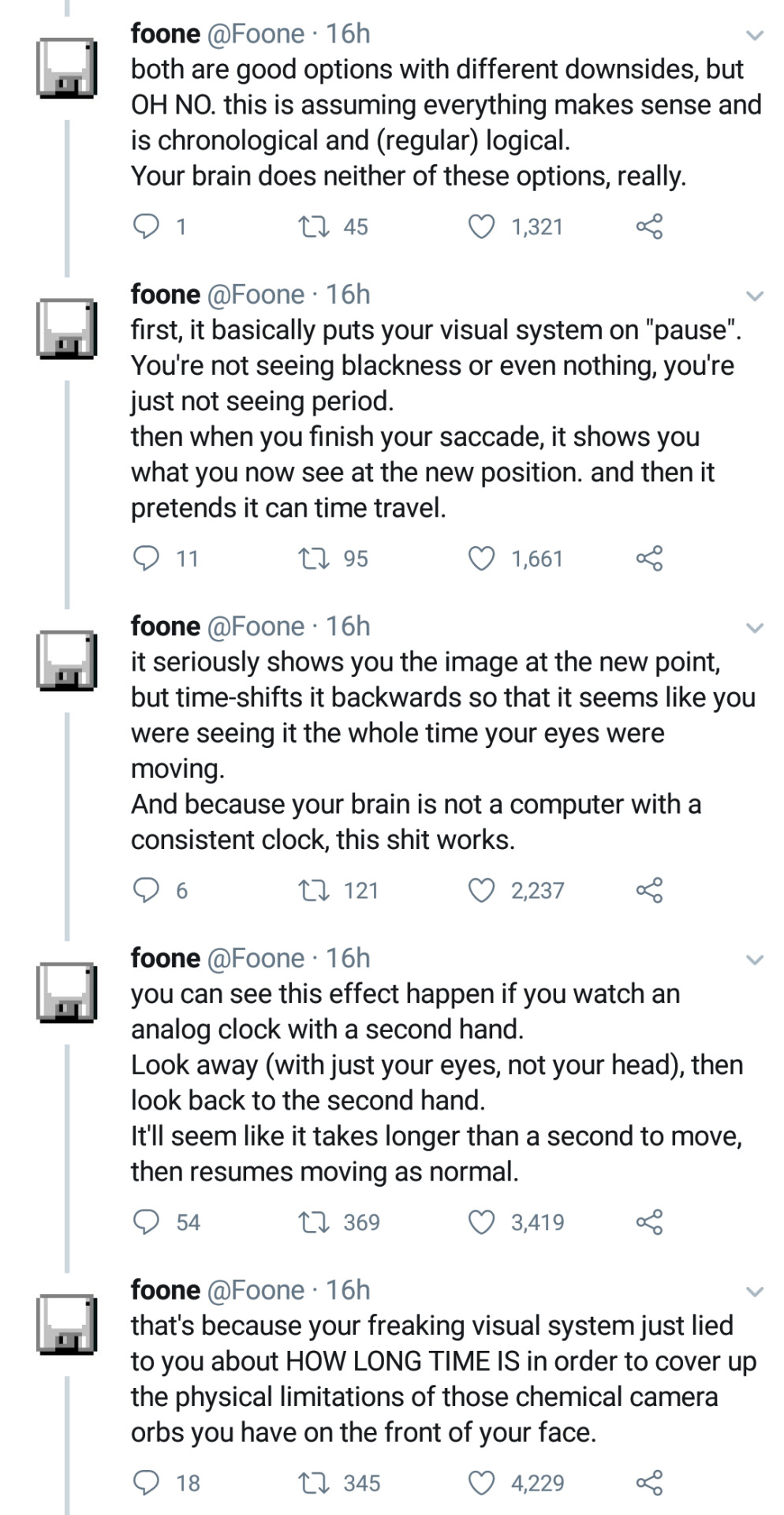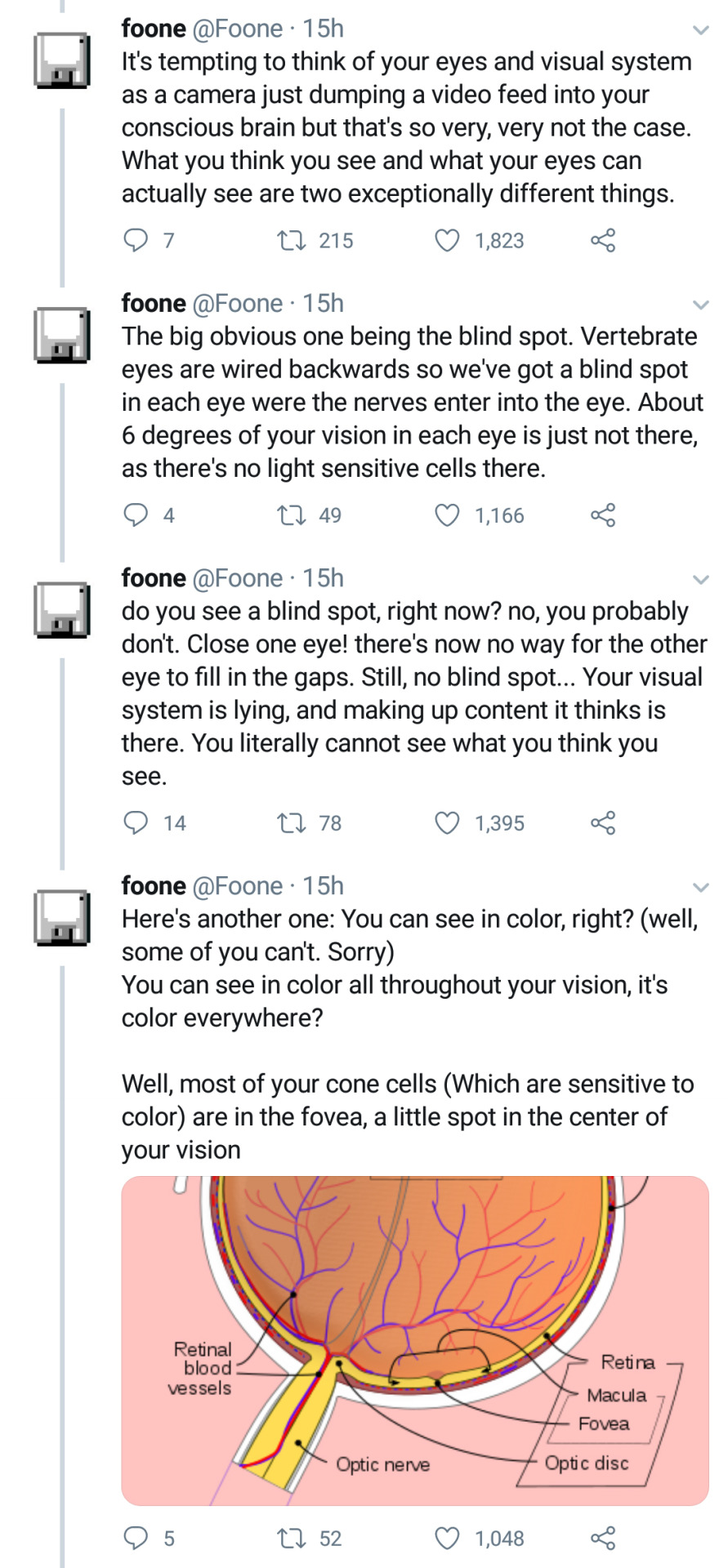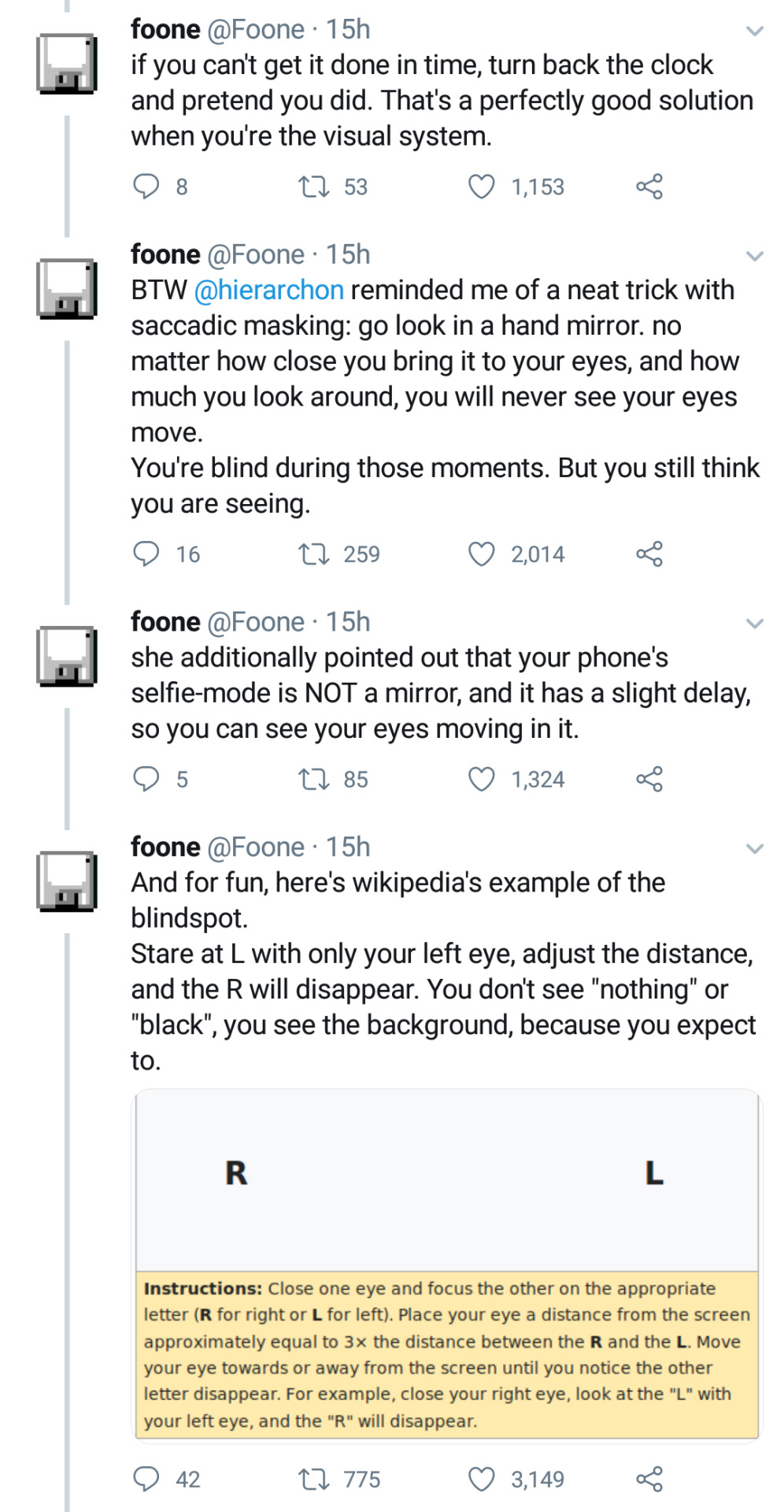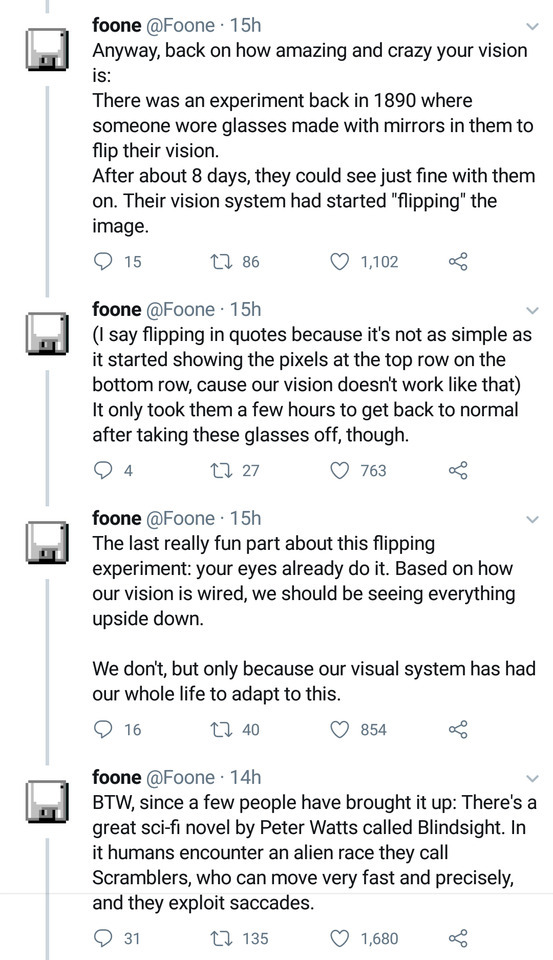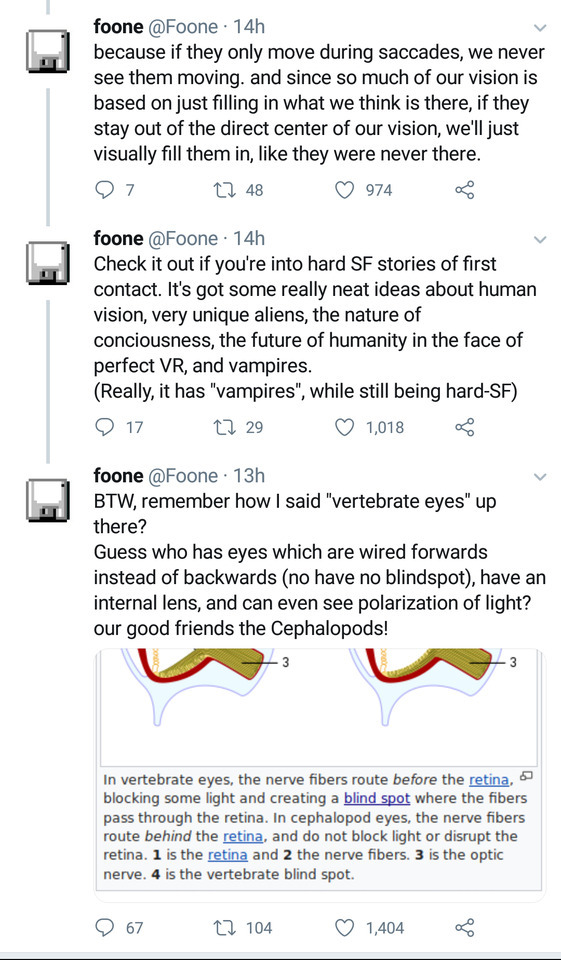Cruisinforabruising101 - 0-o

More Posts from Cruisinforabruising101 and Others
Any tips on how to design reproductive/family life for long lived species? If they could live for 1000 years, family might be extremely complicated because of the possibility of siblings born 700 years apart, having great great etc... grandchilden before your sibling is born. Vocabulary? How about fertility age? Could 700 years could be considered too old to reproduce? How about dynamics on age differences between partners? Anything else? (No interspecies at this time)
Tex: What’s their perspective of time? Does their environment change more rapidly than they do? It would be a little different for an elf in Middle Earth than, say, a vampire in New York City.
Regardless of a species’ window of child-bearing years and years of childhood itself, how their own biology is perceived is influenced by their environment and experiences. Would someone of your species have children 700 years apart? Would that be a long time between children for them, or a typical span where it’s normal to have one child nearly every thousand years?
A human who has a child at 25 might not have a child at 45, even if they’re physically able to do so. I imagine a similar decision-making process might be involved no matter the species, particularly if your species is capable of doing anything about it - that does bring in another nod to enculturation. Is it even considered appropriate to have children 700 years apart? If so, what would be considered the social advantages?
Do they have a religion that prioritizes reproducing often and whenever possible? Do they not? What would be the rationalization behind either dictation?
What if your species, because it is long-lived, has names for children born at certain stages of life? Would that change family dynamics? If so, how so? What about how timing of birth affecting who they’re socially permitted to become romantically or sexually involved with? What would be the rationale behind those sorts of norms?
You’re a mimic. You were disguised as a chair in a dungeon when an adventurer decided to take you as loot. You’ve actually enjoyed your life ever since as furniture in a jolly tavern. So when some ruffians try to rob the now-elderly adventurer’s business, you finally reveal yourself.
Humans Are Weird
To be honest, I didn’t really intend to imply humans were the only weird aliens. It was more a case of “what do we do, what are we good for”? I wound up envisioning us as the rescue dogs of the universe because we’ve got a lot of the same traits that make dogs really valuable for that.
But, for instance, an ambush predator would be much less prone to sunk cost fallacies. A pursuit predator has to be persistent because it’s much worse to leave an animal half worn out to chase another one, even one that would have been easier to start with. Whereas a leopard will come out of hiding the instant it knows it’s been seen (to avoid the obvious pun) because there’s no point sinking energy into stalking something you’ve already lost the chance to pounce on.
A eusocial species would bond even more intensely than humans, but likely more highly confined to their own relatives let alone their own species.
We’d probably all be very strange to one another.
“The female Utahraptor doesn’t have a name for herself. Her brain doesn’t operate with words, not even with silent, unspoken syllables. It works with images, colorful bursts of memory that make up a dreamlike history the brain constantly updates. Every day new experiences and new associations from her senses rearrange the symbolic registry. In her own brain the raptor identifies herself with the symbols she learned as a chick: ‘me… raptor… red.’ We can call her Raptor Red, because that’s how she labels herself in her own mental imagery.”
— -Raptor Red, Robert T. Bakker
i keep trying to phrase a post as like a helpful tip for people who like worldbuilding but. i have to be honest with myself. it is not a helpful tip because no one asked for it. i just want to rant about kinship terminologies.
Another brilliant video.
I may save some of those cultural/society ideas he included as blueprints for some future stories I may write someday.
I’ll be honest, whenever a work of speculative fiction (fanmade or otherwise) goes out of its way to describe an intelligent species with bizarre and complicated reproductive biology, the first question that invariably pops into my head is: “How do these critters masturbate?”







Spirit: Stallion of The Cimarron & the Indian Boarding Schools/Residential Schools allegory
-
 legolastaint liked this · 2 weeks ago
legolastaint liked this · 2 weeks ago -
 cyberhell-chan reblogged this · 2 weeks ago
cyberhell-chan reblogged this · 2 weeks ago -
 bazzer11 liked this · 2 weeks ago
bazzer11 liked this · 2 weeks ago -
 violetcancerian liked this · 2 weeks ago
violetcancerian liked this · 2 weeks ago -
 a-black-sedan liked this · 3 weeks ago
a-black-sedan liked this · 3 weeks ago -
 cholenn liked this · 3 weeks ago
cholenn liked this · 3 weeks ago -
 mety-zah-potato-knight liked this · 3 weeks ago
mety-zah-potato-knight liked this · 3 weeks ago -
 graphielle liked this · 3 weeks ago
graphielle liked this · 3 weeks ago -
 alexd43 liked this · 3 weeks ago
alexd43 liked this · 3 weeks ago -
 meglepetesblog reblogged this · 4 weeks ago
meglepetesblog reblogged this · 4 weeks ago -
 meglepetesblog liked this · 4 weeks ago
meglepetesblog liked this · 4 weeks ago -
 arisamilah reblogged this · 4 weeks ago
arisamilah reblogged this · 4 weeks ago -
 arisamilah liked this · 4 weeks ago
arisamilah liked this · 4 weeks ago -
 cryzzzul liked this · 4 weeks ago
cryzzzul liked this · 4 weeks ago -
 captaindibbzy reblogged this · 1 month ago
captaindibbzy reblogged this · 1 month ago -
 xbeesbubble liked this · 1 month ago
xbeesbubble liked this · 1 month ago -
 iihthrr liked this · 1 month ago
iihthrr liked this · 1 month ago -
 twowigglyworms reblogged this · 1 month ago
twowigglyworms reblogged this · 1 month ago -
 twowigglyworms liked this · 1 month ago
twowigglyworms liked this · 1 month ago -
 sigh-the-kraken reblogged this · 1 month ago
sigh-the-kraken reblogged this · 1 month ago -
 12456810 reblogged this · 1 month ago
12456810 reblogged this · 1 month ago -
 citycolor005 liked this · 1 month ago
citycolor005 liked this · 1 month ago -
 yute15 liked this · 1 month ago
yute15 liked this · 1 month ago -
 shehulk152 liked this · 1 month ago
shehulk152 liked this · 1 month ago -
 trexinacorset liked this · 1 month ago
trexinacorset liked this · 1 month ago -
 keyasaurus reblogged this · 1 month ago
keyasaurus reblogged this · 1 month ago -
 blackangelwingsx reblogged this · 1 month ago
blackangelwingsx reblogged this · 1 month ago -
 blackangelwingsx liked this · 1 month ago
blackangelwingsx liked this · 1 month ago -
 daisy-noir liked this · 1 month ago
daisy-noir liked this · 1 month ago -
 jesse-wilder reblogged this · 1 month ago
jesse-wilder reblogged this · 1 month ago -
 narciesuss liked this · 1 month ago
narciesuss liked this · 1 month ago -
 keyasaurus liked this · 1 month ago
keyasaurus liked this · 1 month ago -
 zomb-ak liked this · 1 month ago
zomb-ak liked this · 1 month ago -
 friedrichnapier liked this · 1 month ago
friedrichnapier liked this · 1 month ago -
 burntsugarink liked this · 1 month ago
burntsugarink liked this · 1 month ago -
 differenttaleenthusiast liked this · 1 month ago
differenttaleenthusiast liked this · 1 month ago -
 gitgellerimgeldilergidemediler liked this · 1 month ago
gitgellerimgeldilergidemediler liked this · 1 month ago -
 mangoslixes reblogged this · 1 month ago
mangoslixes reblogged this · 1 month ago -
 pasolento1 liked this · 2 months ago
pasolento1 liked this · 2 months ago -
 ei-dropeee reblogged this · 2 months ago
ei-dropeee reblogged this · 2 months ago -
 none-beef reblogged this · 2 months ago
none-beef reblogged this · 2 months ago -
 serah-cooks liked this · 2 months ago
serah-cooks liked this · 2 months ago -
 octoberscorn liked this · 2 months ago
octoberscorn liked this · 2 months ago

